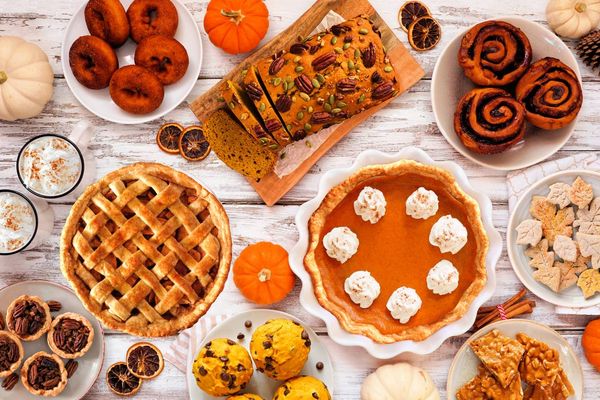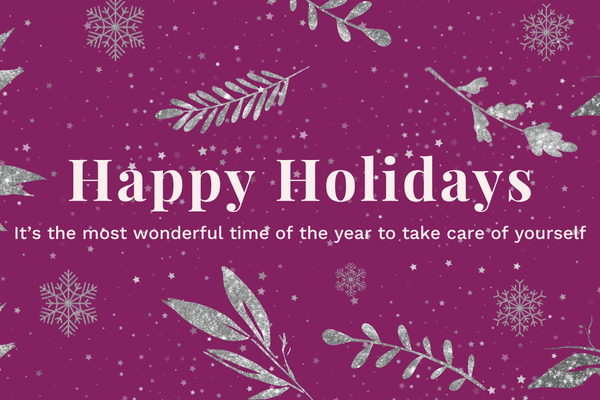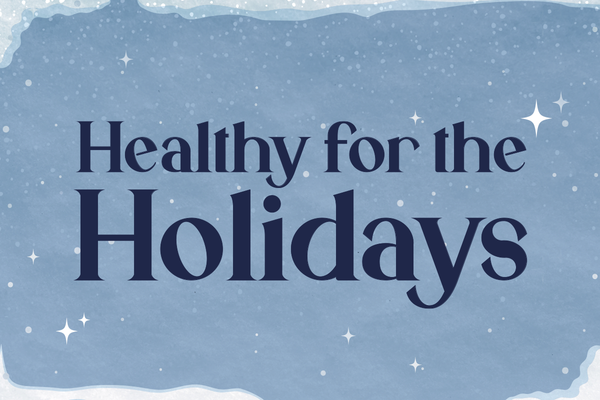Does the approach of the winter holidays—beginning with Thanksgiving and ending sometime after New Year's—fill you with delight or dread?
Women often feel the most pressure to plan, shop, cook, decorate and coordinate seasonal rituals, gifts, mailings and parties. We try to do too much, for too many people, in too little time. The holidays may also remind us of losses—of loved ones, friends, homes, marriages, health, jobs—that stir sad feelings.
No wonder some of us start the season aglow with anticipatory joy only to end up, weeks later, feeling awful. "Exhaustion, depression, sleeplessness, poor appetite, overeating, and irritability are all signs of stress," says Dorothy W. Cantor, PhyD, president of the American Psychological Foundation and a psychologist who is in private practice in Westfield, N.J.
There are good health reasons to avoid holiday stress. Women suffer stress-induced depression more often than men and are more likely to experience depression from seasonal affective disorder caused by reduced daylight. Research also shows that death rates peak across the United States in December and January, regardless of climate, for both cardiac and noncardiac causes. Holiday stress is one reason why.
Yet stress doesn't have to be part of your holidays.
Taking positive actions now to plan the upcoming season will reduce pressures and increase your enjoyment of what can be a lovely time of year. What's more, you can arm yourself with quick "escape valve" techniques to remove stress when you're in the midst of the most hectic days.
Ditch the great expectations
"The biggest stress is expectations—those that others have of us and those we impose upon ourselves," says Mary Jo Kreitzer, PhD, RN, director of the Center for Spirituality and Healing and associate professor of nursing, University of Minnesota. "We focus on buying more presents, baking more cookies, going to more concerts or parties. Our schedules fill up and our pocketbooks empty."
Expectations of how the holidays should be may keep us from enjoying a period of simpler, more meaningful joys. Here's a guide for planning stress-free holidays. Start the tasks near the top of the list a couple of months before the holidays if you can and work your way down the list. When the holidays arrive, you'll be able to relax!
- Start planning early. "You reduce stress because you lay out a timetable and don't get caught in the feeling of being rushed to fit things in at the last minute," Cantor says.
- Check the calendar now. There are lots of holidays in December and January—not just Christmas, Hanukkah, Kwanzaa and New Year's, but also some Orthodox Christian, Islamic and Sikh holidays and festivals. If you have family members who celebrate different holidays, talk with everyone about how, where and when celebrations will take place.
- Think about what's worked for previous holidays. Kreitzer suggests asking yourself what your best memories are from the holidays and what traditions or events were the most draining or stress-producing. Use your answers to make healthful changes to lessen stress this year. If family and friends will be involved in your new plans, propose and negotiate changes with them now, before schedules are set.
- Determine who will help. "We don't have to do it all and we don't have to do it all alone," says Kreitzer. "Enlist others, set priorities, and simplify!"
- Build more physical activity into your day. As little as 30 minutes of moderate activity at least five, and preferably all, days of the week will help you stay healthy and de-stressed. A brisk daily walk or bike ride may keep your stress in check. If you want to make sure your weight stays stable through the holidays, you may need to up your activity to 60 to 90 minutes most days of the week.
- Set gift limits according to your personal situation. You may want to curb the cost or amount of gift-buying you do. If so, talk with family, friends or coworkers in advance to reach agreement on this, Cantor says.
- Create new traditions to replace any rituals that trigger sadness.
- Organize your gift list and shop early. You can avoid crowded stores and out-of-stock items by shopping early. If you order online, shipping costs are usually lower when you have time to wait for delivery. Think how relaxing it would be to finish your holiday shopping before Thanksgiving.
- Wrap and label gifts. If you've shopped early, you can also wrap your gifts early. You can stash gifts in a closet or at a friend's house, but keep a list so you don't forget what you have.
- Decorate gradually. Consider how much time you realistically have for decorating and set up a brief schedule for doing it gradually.
- Cook ahead. Create a list of food specialties you enjoy making, choosing those that can be baked or cooked and frozen in advance. Begin making those items weeks ahead and freeze them for holiday parties.
- Address cards in advance. If you enjoy sending holiday cards or letters, prepare them weeks ahead. You can mail them whenever you want.
- Make entertaining easy. Limit how many people you invite, and if guests ask what they can bring, assign the dishes that must be prepared fresh, such as salad.
- Limit the events you attend. You aren't obligated to accept every invitation you receive or go to every holiday-related event in town. Think about what you'll really enjoy and graciously decline the rest.
- Find your family comfort zone. If family events tend to be stressful, you may want to make alternate plans and then graciously decline the family gatherings. If you feel you must attend, line up friends to support you in person, by phone or by e-mail. "If your family is not happy together the rest of the year, what magic will make that happen during the holiday season?" Cantor says. "For some people, not being with family is actually a good idea."
- Eliminate stressful long-distance visits. If taking a long trip over the holidays adds stress, consider delaying the visit to a less hectic time of year.
- Volunteer to help out. Sometimes it can relieve your stress to help someone else. Consider assisting at a hospital, food pantry or shelter.
- Stay calm down the stretch. In those final few days before the holiday, you may start having symptoms of stress, such as headaches, anxiety or stomach distress. If so, listen to your body and slow down. You may also want to try these tips:
- Eliminate anything left on your to-do list.
- Sleep seven to nine hours sleep every night.
- Don't forget your workouts. Take daily walks with a friend, a dog or soothing music on your headphones. If you use a gym regularly, but the holidays have thrown you off schedule, take time for a workout. Your emotions and your body will thank you.
- Take a few deep abdominal breaths to calm you.
- Enjoy! Remember what it is you're celebrating and take time to enjoy the holiday.







